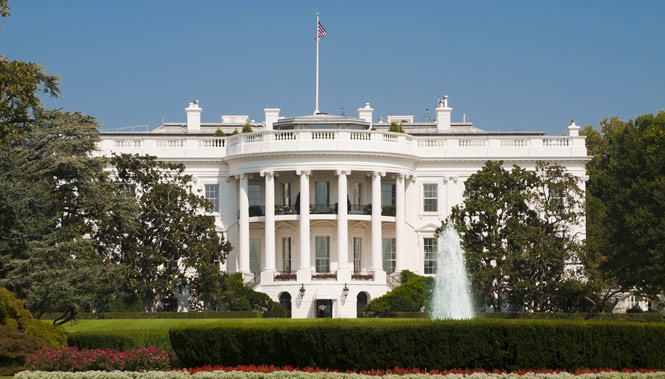
“I just got off the phone with the White House,” petition creator Sina Khanifar told me this morning. “They’re in full support … they’re going to push through legislation to make the change.”
[aditude-amp id="flyingcarpet" targeting='{"env":"staging","page_type":"article","post_id":632496,"post_type":"story","post_chan":"none","tags":null,"ai":false,"category":"none","all_categories":"business,dev,mobile,","session":"A"}']The petition is in response to a Librarian of Congress ruling in 2012 to remove unlocking of cellphones from DCMA exceptions, meaning that it would become illegal. Khanifar said — and 114,322 cosigners agreed — that this would result in customers being “forced to pay exorbitant roaming fees to make calls while traveling abroad” and will reduce consumer choice as well as decreasing resale value of devices.
R. David Edelman of the White House staff has responded, saying that “the White House agrees with the 114,000-plus of you who believe that consumers should be able to unlock their cellphones without risking criminal or other penalties” and that “all consumers deserve that flexibility.”
AI Weekly
The must-read newsletter for AI and Big Data industry written by Khari Johnson, Kyle Wiggers, and Seth Colaner.
Included with VentureBeat Insider and VentureBeat VIP memberships.
Khanifar, as you can imagine, is overjoyed with the response — and the phone call from the White House — and is hoping that this will lead to more pro-consumer legislation.
“I’m really hoping that this momentum can be used to fix a bunch of things,” he told me, citing the DMCA itself, jailbreaking of phones, and more. “I’d love to fix them all.”
How long will it take?
Khanifar, while overjoyed with the current result, was realistic about the realities of our political system.
“God knows,” he said.
Here is the full text of the White House response to the cellphone unlocking petition:
[aditude-amp id="medium1" targeting='{"env":"staging","page_type":"article","post_id":632496,"post_type":"story","post_chan":"none","tags":null,"ai":false,"category":"none","all_categories":"business,dev,mobile,","session":"A"}']
Thank you for sharing your views on cell phone unlocking with us through your petition on our We the People platform. Last week the White House brought together experts from across government who work on telecommunications, technology, and copyright policy, and we’re pleased to offer our response.
The White House agrees with the 114,000+ of you who believe that consumers should be able to unlock their cell phones without risking criminal or other penalties. In fact, we believe the same principle should also apply to tablets, which are increasingly similar to smart phones. And if you have paid for your mobile device, and aren’t bound by a service agreement or other obligation, you should be able to use it on another network. It’s common sense, crucial for protecting consumer choice, and important for ensuring we continue to have the vibrant, competitive wireless market that delivers innovative products and solid service to meet consumers’ needs.
This is particularly important for secondhand or other mobile devices that you might buy or receive as a gift, and want to activate on the wireless network that meets your needs — even if it isn’t the one on which the device was first activated. All consumers deserve that flexibility.
The White House’s position detailed in this response builds on some critical thinking done by the President’s chief advisory Agency on these matters: the Department of Commerce’s National Telecommunications and Information Administration (NTIA). For more context and information on the technical aspects of the issue, you can review the NTIA’s letter to the Library of Congress’ Register of Copyrights (.pdf), voicing strong support for maintaining the previous exception to the Digital Millennium Copyright Act (DMCA) for cell phone carrier unlocking.
Contrary to the NTIA’s recommendation, the Librarian of Congress ruled that phones purchased after January of this year would no longer be exempted from the DMCA. The law gives the Librarian the authority to establish or eliminate exceptions — and we respect that process. But it is also worth noting the statement the Library of Congress released today on the broader public policy concerns of the issue. Clearly the White House and Library of Congress agree that the DMCA exception process is a rigid and imperfect fit for this telecommunications issue, and we want to ensure this particular challenge for mobile competition is solved.
So where do we go from here?
The Obama Administration would support a range of approaches to addressing this issue, including narrow legislative fixes in the telecommunications space that make it clear: neither criminal law nor technological locks should prevent consumers from switching carriers when they are no longer bound by a service agreement or other obligation.
We also believe the Federal Communications Commission (FCC), with its responsibility for promoting mobile competition and innovation, has an important role to play here. FCC Chairman Genachowski today voiced his concern about mobile phone unlocking (.pdf), and to complement his efforts, NTIA will be formally engaging with the FCC as it addresses this urgent issue.
Finally, we would encourage mobile providers to consider what steps they as businesses can take to ensure that their customers can fully reap the benefits and features they expect when purchasing their devices.
We look forward to continuing to work with Congress, the wireless and mobile phone industries, and most importantly you — the everyday consumers who stand to benefit from this greater flexibility — to ensure our laws keep pace with changing technology, protect the economic competitiveness that has led to such innovation in this space, and offer consumers the flexibility and freedoms they deserve.
photo credit: dcJohn via photopin cc
VentureBeat's mission is to be a digital town square for technical decision-makers to gain knowledge about transformative enterprise technology and transact. Learn More